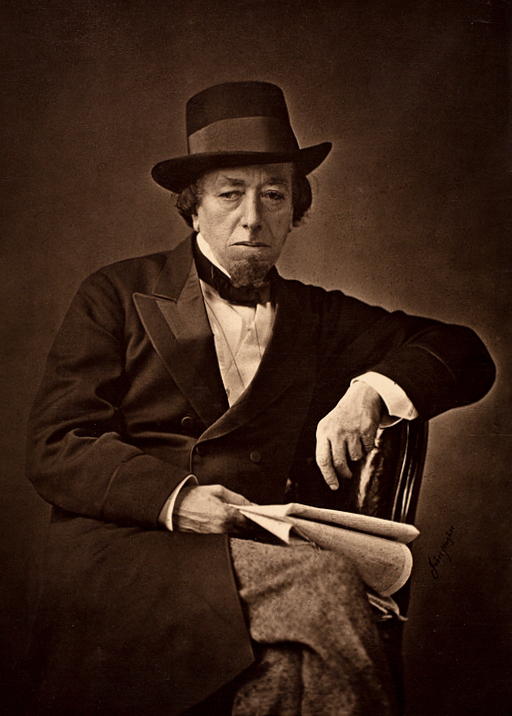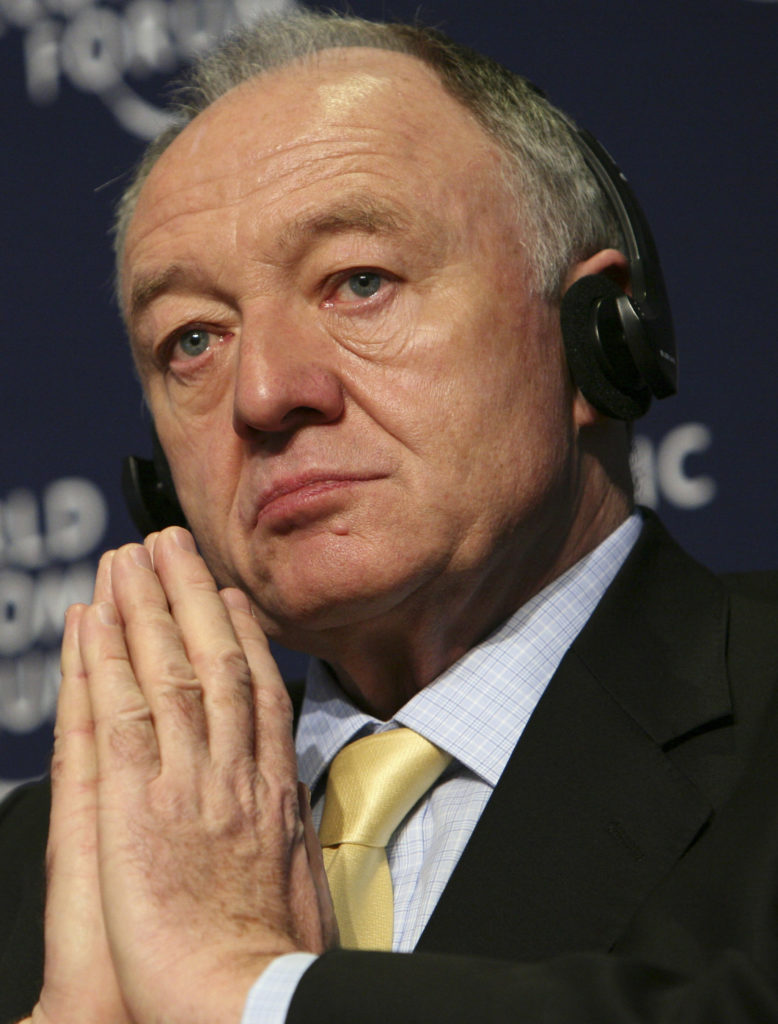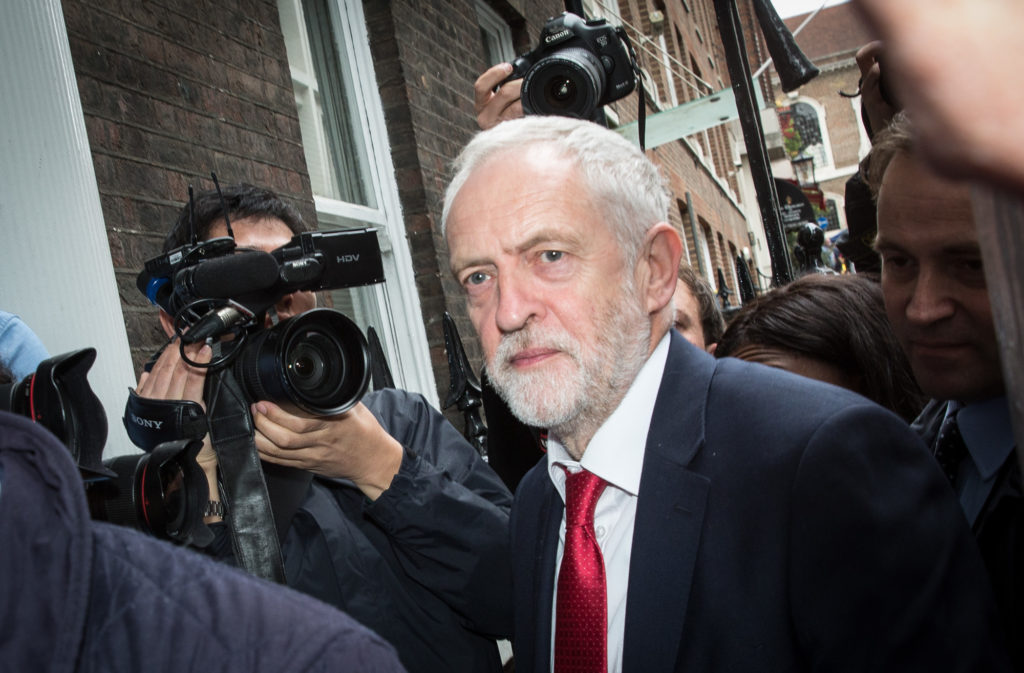Every September, the annual Labour Party Conference is held in the United Kingdom. One of the largest and highest-profile political events in Europe, it was most recently hosted in the Labour-controlled city of Brighton with over 13,000 attendees and 450 fringe events. For the United Kingdom’s Labour Party, the conference often serves as on opportunity to foster unity, heal divisions, and plot their party’s future. Bringing pressure-groups and businesses from across Britain, the 2017 conference attracted major U.K. leaders including the party leader Jeremy Corbyn and London Mayor Sadiq Khan.
However, the mood quickly turned toxic when Labour members and activists called for the expulsion of Jewish and pro-Israel members. A fringe event speaker stated that the Holocaust was a “yes or no” question.” At the same meeting, an audience member was met with cheers when comparing pro-Israel supporters to Nazis. Understandably, when the stories leaked to the media, there was outrage.
In response, the Leader of the Brighton Council Warren Morgan threatened to ban the party from the city. The Jewish Labour Movement chair Jeremy Newmark, speaking to the HPR, expressed his deep concern that “a large number of Labour activists appear to be willing to entertain the question that somehow the Holocaust is up for debate.” As senior leaders of the Labour Party scrambled to condemn the comments, Corbyn was forced to deny accusations that Labour had become the new “Nasty Party” of the United Kingdom.
Unfortunately, the anti-Semitism seen in Brighton was not an isolated incident. After Corbyn’s successful leadership campaign as a hard-left activist in 2015, multiple allegations surfaced that he was turning a blind eye to anti-Semitism within the party. The Campaign Against Antisemitism pointed out that in 2016 and 2017, 75 percent of British Jews felt that political events had caused anti-Semitism to rise, and that more than four in five considered the Labour Party to be harboring anti-Semites in its ranks.
Meanwhile, Corbyn’s hard-left allies continue to argue that anti-Semitism has been exaggerated in order to depose him from his position as leader of Labour, their words having the damaging effect of fueling Jewish conspiracy theories further. In his interview with the HPR, Newmark strongly rebutted this claim as it was “rooted in a deeply anti-Semitic idea that when Jewish people step forward to complain about racism or anti-Semitism, they must be doing so in bad faith or part of a broader agenda.”
The new anti-Semitism
Anti-Semitism has a long history in the United Kingdom. From the massacre of hundreds of Jews at Clifford’s Tower in 1190, to the Edict of Expulsion issued by Edward I in 1290 expelling all Jews from the Kingdom of England, British anti-Semitism dates as far back as the Norman Conquest. Oliver Cromwell’s re-admission of the Jews in 1655 did little to subdue the prevalence of anti-Semitism within politics.

Benjamin Disraeli, the only Prime Minister in U.K. history of Jewish descent.
In the 19th century, Prime Minister Benjamin Disraeli received abuse from his own party for his Jewish roots. The British Union of Fascists attempted to capitalize on anti-Jewish sentiments in 20th century Europe, leading to the historic Battle of Cable Street where communists, anarchists, and Jews built barricades to prevent a BUF march in East London. But, it was only in the aftermath of the Holocaust that this old form of anti-Semitism was heavily stigmatized in public discourse.
Over the last few decades, accusations of anti-Semitism in the Labour party have become increasingly visible in the mainstream of U.K. politics. Originally found in the far-right, a new form of anti-Semitism emerged within the political left and Islamic groups as a response to the establishment of the State of Israel, and, more recently, the 2008-2009 Gaza War. Irwin Cotler, previous Attorney General of Canada and international human rights expert, identified this “new anti-Semitism” as anchoring in discrimination against the Jewish people’s right to live as an equal member of the family of nations. Recognizing that rigorous debate and critique surrounding the activities of Israel is understandable and important, Cotler argues that the line of anti-Semitism is crossed when the discussion turns to the dismantling of the Israeli and predominantly Jewish state.
When asked by the HPR on how it distinguishes criticism of Israel from anti-Semitism, the Campaign Against Antisemitism responded that, “Often, criticism of Israel goes far beyond the legitimate political discourse and crosses into anti-Semitic hatred, using the State of Israel as a means by which to attack Jewish people.” It is this form of anti-Semitism that has found a home in the far-left element of the Labour Party, and within certain members who continue to exercise anti-Jewish hatred under the complex veil of anti-Israel criticism. With Corbyn now serving as leader of the Labour Party, his reluctance to directly condemn anti-Jewish remarks made by his Labour allies, or even by a member of Parliament, has not gone unnoticed.
The living nightmare of Ken Livingstone
Jeremy Corbyn’s blind spot on anti-Semitism begins with his key ally Ken Livingstone, otherwise known as “Red Ken,” who endorsed Corbyn in the 2015 Labour Party leadership election. Today, he stands as an ever-present reminder that anti-Semitism is treated quite differently than other forms of discrimination within the party. Previously the Mayor of London, Livingstone has a long history of openly anti-Semitic and controversial Hitler comments.
Writing for the Labour Herald in 1982, he criticized his party’s muted response on the Palestinian-Israeli conflict, suggesting that it was due to a sort of Jewish “distortion” running throughout British politics. He has fueled anti-Jewish conspiracy theories by claiming extremist Jews were organizing fascist paramilitary groups in order to harm his reputation, describing Jews as “basically a tribe of Arabs,” and arguing that the reason for the decline in Jewish support for Labour in 1984 was because Menachem Begin entered politics and then “suddenly the Jews became reactionaries, turned Right, nearly to be fascists.”
To add to this, Livingstone has frequently expressed inaccurate and insensitive revisionist views of World War II. For example, Livingstone has compared the actions of British troops in Northern Ireland to the Nazi persecution of Jews, refused to apologize for comparing a Jewish journalist from the Evening Standard to a German war criminal, and argued that “every year the international financial system kills more people than World War II. But at least Hitler was mad.” Livingstone embodies the dark, anti-Semitic element of the far-left, showing a blatant disregard for the extent of historical suffering endured by the Jewish community, and fueling distasteful conspiracy theories.

Then-London Mayor Ken Livingstone in 2008.
In 2016, Livingstone was suspended from the Labour Party after he claimed Adolf Hitler “was supporting Zionism before he went mad and ended up killing six million Jews” on a BBC Radio London interview. Corbyn described the comments as grossly insensitive, but failed to acknowledge them as anti-Semitic. It had to be one of Labour’s own MPs, John Mann, that angrily confronted Ken Livingstone about the historical inaccuracy and racist nature of his remarks. 107 Labour MPs and 48 Labour peers signed a statement expressing their disgust, declaring: “We stand with the Jewish community and British society against this insidious racism.” London Mayor Sadiq Khan pointed to Livingstone’s lack of remorse and the disciplinary panel’s decision to not expel Livingstone as setting a dangerous precedent on the Party’s approach to racism.
Despite fierce opposition from both sides of the Commons, Livingstone appears to have escaped expulsion once again. Speaking to the HPR, the Leader of the Welsh Conservatives Andrew R. T. Davies slammed Corbyn’s response “as too little too late,” and stated that anti-Semitism in the party has been “exacerbated under Corbyn’s leadership.” For every day Livingstone’s unashamed anti-Semitism is debated, and his position within the party entertained, the fear, anger, and hurt within the party’s Jewish membership grows. Even if he were eventually to face expulsion, the damage created by Labour’s hesitance to do so may be far beyond repair. Labour’s problem with anti-Semitism does not end with Livingstone — other Labour politicians have been the subject to similar accusations in recent years.
A tolerance of intolerance
The Labour Party was embroiled in another anti-Semitic row in 2016 when it was discovered that MP Naz Shah had called for Israel’s population in the Middle East to be “transported” out to America. It was further revealed that she wrote a caption #ApartheidIsrael on a picture that appeared to compare Israel to the Nazis. Concerningly, Shah was a relatively new MP, elected in 2015 for the constituency of Bradford West, suggesting that perhaps a new generation of casual anti-Semitic sentiment was emerging. At the time of the revelations, she was a parliamentary private secretary to the shadow Chancellor John McDonnell. Corbyn stated that Shah made a “fulsome apology,” but his comments were criticized for refusing to admit that the posts were anti-Semitic.
It was only when the crisis reached the front pages of major U.K. papers like the Times and the Daily Mail — and it was further revealed that Shah had employed a Labour councilor who claimed Russian Orthodox Jews were involved in the “sex trafficking trade” — that Corbyn’s hand was forced and he suspended Shah from the party. Two months later, Shah’s suspension was overturned and she was reinstated. In Shah’s defense, Jeremy Newmark identified how Shah showed “signs of genuine contrition” and argued that she did not have an understanding of contemporary anti-Semitism. For this reason, her case heavily contrasted to “Livingstone’s utter lack of contrition.”
However, it is the Labour leadership’s close affiliation with Momentum, a grassroots movement and far-left political organization, that has seriously concerned many Jewish Labour members and MPs. Known for its unwavering support of Corbyn and its growing dominance within the Labour Party, Momentum has pushed for deselecting moderate Labour councillors, and permitted the use of casual anti-Semitism by its members.
 U.K. Labour Party Leader Jeremy Corbyn leaves a national security conference, May 2017.
U.K. Labour Party Leader Jeremy Corbyn leaves a national security conference, May 2017.
In 2016, Jackie Walker was removed from her position as Momentum vice chair after footage emerged of Walker slamming Holocaust Memorial Day as it was not “open to all people who experienced Holocaust,” even though Holocaust Memorial Day is a national commemoration day dedicated to the remembrance of those who suffered in the Nazi Holocaust and subsequent genocides in places like Cambodia, Rwanda, Bosnia and Darfur. Walker also questioned whether it was necessary for Jewish schools to receive particular security. Momentum’s response was to remove Walker from her vice chair position as she should have been more “careful,” but to keep Walker as a member as her comments were not necessarily anti-Semitic.
Ironically, Momentum’s harshest words lay not with Walker, but with the person who filmed the footage, stating that “the leak is unacceptable and undermines much needed political education.” But it was Labour’s reluctance to expel Jackie Walker that reopened old wounds. In fact, it was the second time Walker had been suspended from Labour, after previously claiming that Jewish people were the “chief financiers of the sugar and slave trade.” Again, just like with Ken Livingstone and Naz Shah, the Labour Party refused to expel Walker. Instead, a suspension sufficed.
Labour on the mend
With the recent events in Brighton, and the mounting pressure to stamp out anti-Semitism both within the party and in grassroots organizations, the Labour leadership has pledged its support for tough new rules on anti-Jewish hate speech. In a positive step towards reform, Momentum has asked its delegates to vote in favor of the rule change, with leader Jon Lansman admitting that Labour ought to do more to rid itself of anti-Semitism.
The key change within the rules, on “conduct prejudicial to the party,” will make it easier to expel members who express anti-Jewish and hateful views. The change found overwhelming support among average Labour voters, with 98 percent of eligible party members supporting its implementation. Despite this clear consensus for change, the conference debating on the rule change saw speaker after speaker condemn it as a threat to freedom of speech.
Jewish attendees were clearly distressed and discomforted at the disproportionate time given to speakers who represented a very marginal element of Labour voters. The proposal passed successfully, but the hostile row that developed as a consequence served as a sharp reminder that the amendment may sugar coat, as oppose to mitigate, the increasingly complex and distasteful new anti-Semitism within the far-left.
Reactions to these recent reforms have been mixed. Rabbi Laura Janner-Klausner, the Senior Rabbi to Reform Judaism and one of the most high-profile Jewish leaders in the country, told the HPR that she could “definitely hear a change in tone, nuance, and direction.” In reference to Livingstone’s continued suspension but not removal from the party, she added, “I am assuming that when they revisit, they will discipline him more strongly, but that’s not because of what it looks like but because of what it is.” With stronger rules in place, there is hope for increased vigilance towards anti-semitism.
However, others have noted that Labour still has a ways to go. Newmark, having personally assisted in drafting the new rules, was more skeptical. He told the HPR that, “it’s very easy to amend a rule book.” “The real sign of change will be when we have the opportunity to see how further cases are dealt with. The proof of the pudding is in the eating. It will be the enforcement of the rules that deliver change.”
The Labour Party’s soft-handed approach to anti-Semitic remarks has generated international attention, led to national condemnation from the British prime minister, and significantly unnerved Jewish party members. As a consequence, Labour now runs the risk of becoming the new “nasty party” of British politics. All eyes are on the Labour leadership to deliver its promise of zero tolerance on anti-Jewish hatred. Racism is racism, no matter the religion or creed. Under the reformed rules on anti-Semitism, Jeremy Corbyn has the potential to restore Labour’s reputation as a Party for equality, but he must first recognize that a halfhearted response to anti-Semitism is not only insufficient — it is a damning sign of complicity.
Image Credit: Unsplash/James Siddons // Harvard Art Museum/Fogg Museum // World Economic Forum // Chatham House/Wikimedia Commons
